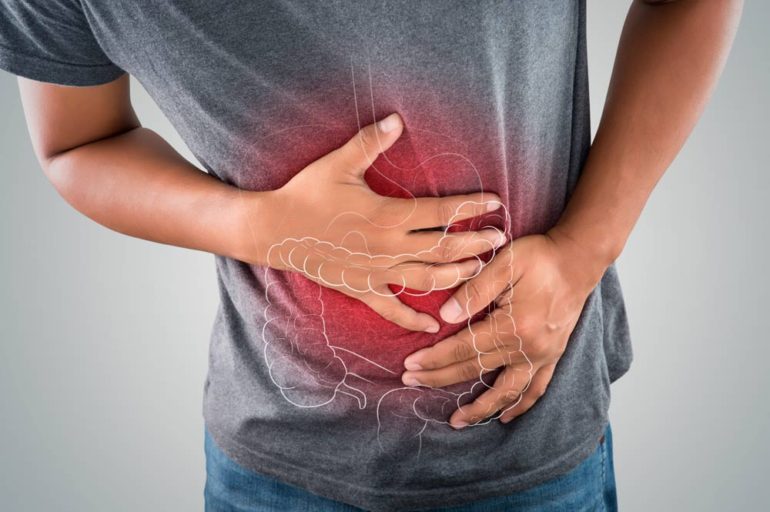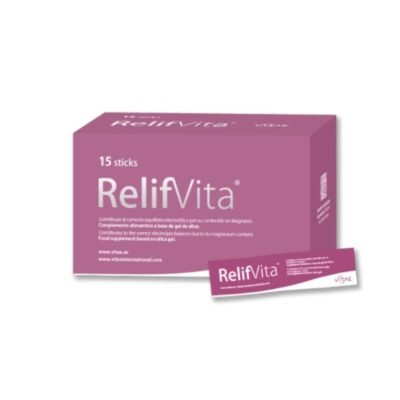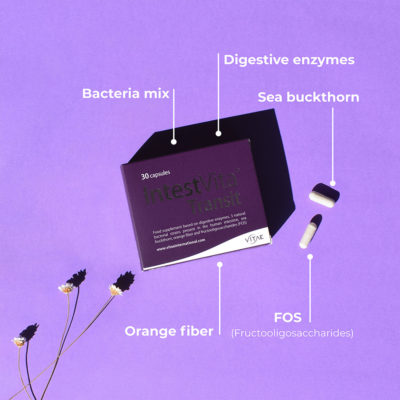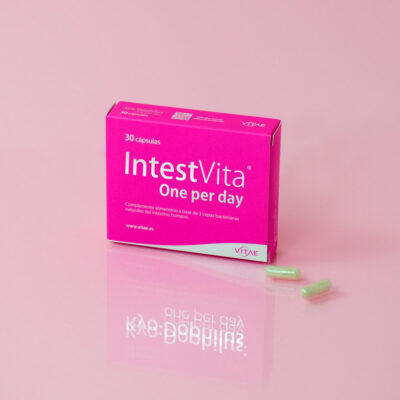A stressful lifestyle has a negative impact on health. We rush everywhere and we don’t take enough time to eat and cook. MISTAKE! Stress and inflammatory diet, full of processed foods, causes intestinal permeability, which consists of the entry of larger particles through the walls of the intestines, helping toxic substances, bacteria and viruses that can harm the body to pass through. Because of this, the intestines must be permeable and thanks to an anti-inflammatory diet, a better absorption of the necessary nutrients for our body can be carried out.
What is intestinal permeability and what does it consist of?
Intestinal permeability is the ability of the walls of our intestines to absorb beneficial nutrients for our body and, at the same time, prevent the passage of certain substances that are harmful to our health, such as bacteria, viruses, or even toxic substances. We can find an increase in permeability and also the opposite, a decrease in intestinal permeability. What do each of them cause?
Increased intestinal permeability
When our intestines absorb more than normal, it is because there has been an alteration in the intestinal barrier function due to intestinal infections due to the consumption of allergenic foods, alcohol, antibiotics, chemotherapy, radiotherapy or also due to alterations in the intestinal flora.
Increased intestinal permeability is often related to intestinal diseases such as Crohn’s disease, rheumatoid arthritis, asthma, multiple sclerosis, and diabetes.
Decreased intestinal permeability
However, when we talk about a decrease in intestinal permeability, we are referring to poor absorption of the necessary nutrients. One of the diseases that is usually related to the decrease in permeability is celiac disease.
Symptoms of leaky gut pathology
- Chronic diarrhea, constipation, or bloating.
- Fatigue.
- Headaches.
- Difficult to focus.
- Skin problems, such as acne rashes or eczema.
- Joint pain.
- Inflammation.
- Food intolerance.
- Difficulty losing weight
Treatment for intestinal permeability pathologies
There are certain changes in your diet and lifestyle that can be very beneficial to maintain good intestinal permeability:
- Try to avoid refined and processed products.
- Add more intake of probiotics and prebiotics.
- Avoid sugar and artificial sweeteners.
- Exercise regularly.
- Enough sleep.
- Reduce stress.
- Avoid antibiotics when posible.
- No Smoking.
- Avoid drinking alcohol.
- Food supplements
What foods can help to have good intestinal permeability?
It is very important to take into account what foods we eat, since there are some that repair leaky gut and others that make it worse. Knowing what they are will help to lead a better diet and prevent reaching a worse state. The recommended foods are:
- Foods rich in zinc: dark chocolate, peanuts, pumpkin seeds, clams, oysters…
- Foods with high levels of L-Glutamine and L-Arginine: chicken, turkey, lean pork, spinach, shellfish, almonds, cucumber, asparagus…
- Foods that we should avoid would be: coffee, tea, alcoholic beverages, spicy foods.
Vitae solution
OlioVita is a food supplement with pure sea buckthorn, rich in Omega 7, Omega 3, 6 and 9, as well as natural vitamins A and E that contributes to the nutrition, hydration and protection of the skin and mucous membranes. In this case, the digestive mucosa, so that our intestines can have good permeability.
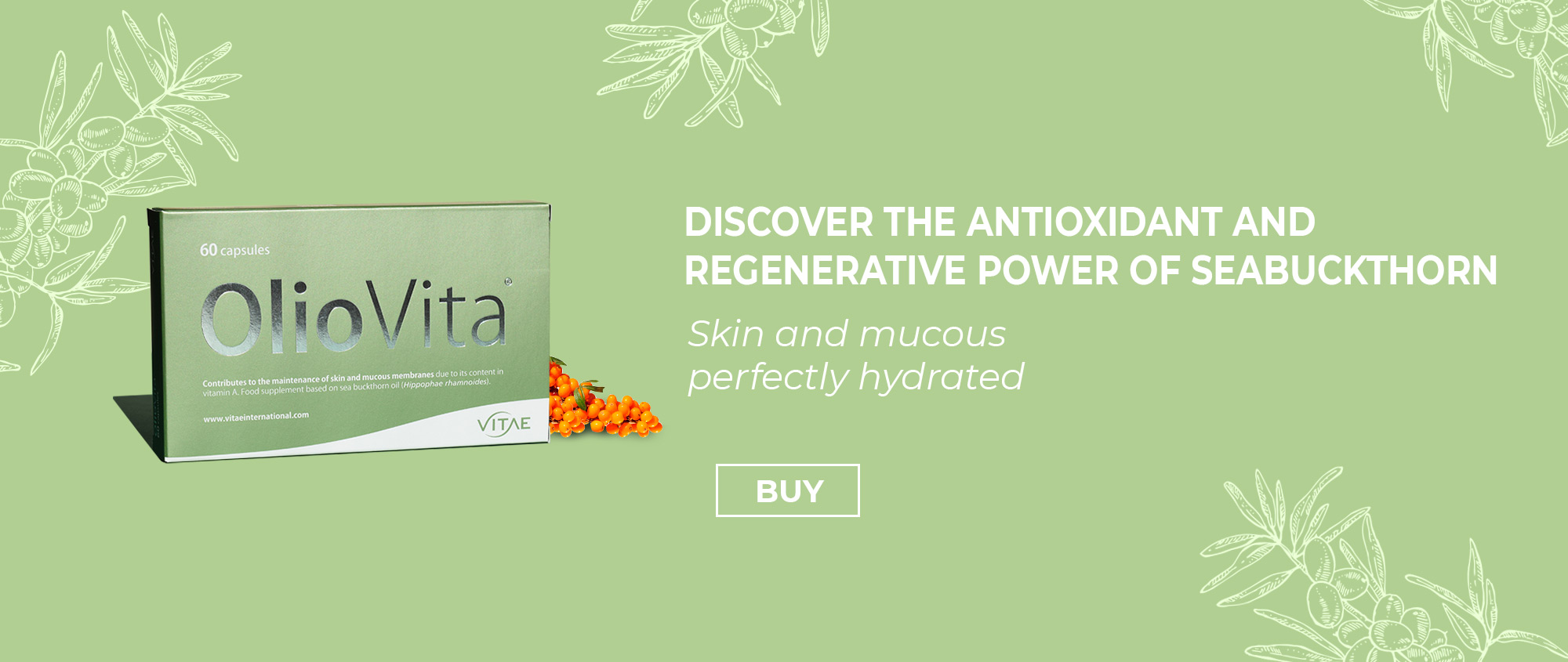
Vitadigest Enzymes is a food supplement that helps with the digestion process as it contains probiotics and 4 digestive enzymes (amylase, lipase, protease and lactase). When there is permeability, if food molecules are very large and are not properly digested, it can lead them to enter between the tight junctions between enterocytes, causing health problems.
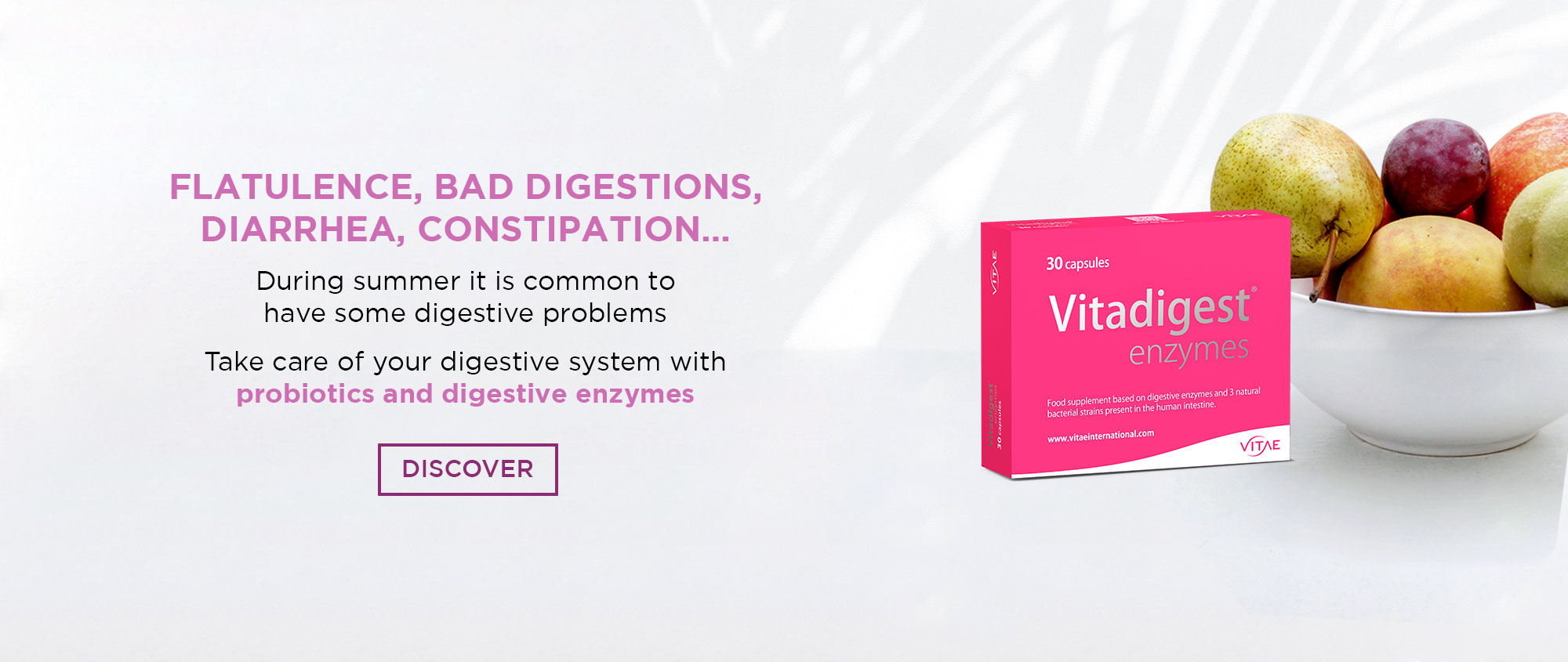
Incorporating healthy foods into our diet is of vital importance to maintain a good health. A food supplement can complement our diet as sometimes we can’t reach the recommended intake for certain ingredients. For example, hydrate and nourish the mucous membranes, provide probiotics to our digestive system or solve related symptoms that come from a lack of intestinal permeability.

